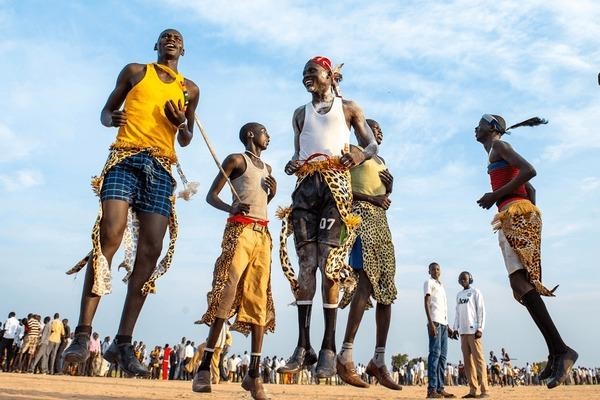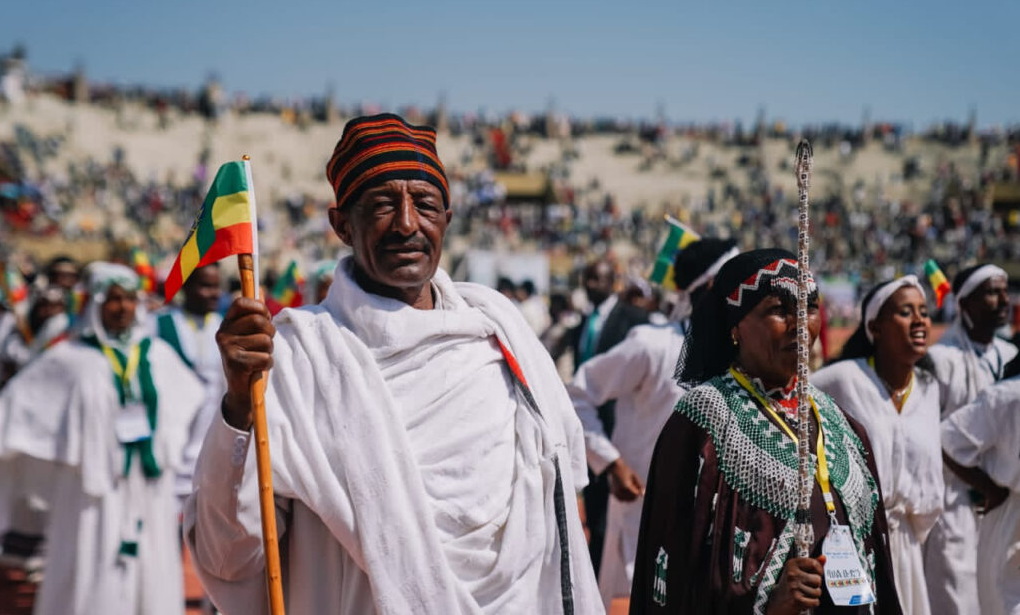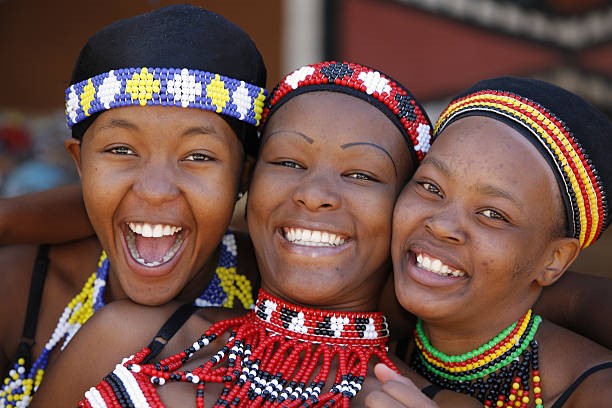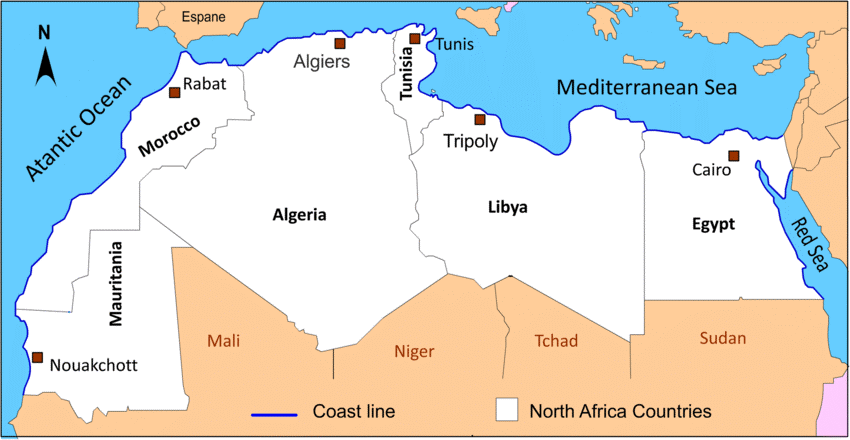The Yoruba language is one of the most widely spoken languages in West Africa with over 45 million first-language speakers and millions more speaking it as a second language. It is a pluricentric language that is primarily spoken in a dialectal area that spans Nigeria, Togo, and Benin, with smaller migrated communities dwelling in Sierra Leone, Cote d’Ivoire, and The Gambia. The vast majority of Yoruba speakers are found in Nigeria, comprising over 20 million individuals. These speakers are located particularly in Lagos, O.yo. Kwara, Kogi, O.s.un, Ekiti, Ondo, and Ogun states, which comprise the southwestern corner of the country.
The Yoruba language is part of the Yoruboid branch of the Niger-Congo language family, which also comprises an estimated 1,500 additional languages. It is a tonal language, where pitch and intonation can change the meaning of words entirely, making it both complex and fascinating. In addition, Yoruba is embedded with proverbs, folktales, and chants that have been passed down through generations, thus helping preserve the worldview and moral compass of the Yoruba people. The language has adapted over time as it continues to incorporate elements from other languages due to colonial influences, migration, and trade.
Today, Yoruba is used as a first language in Yoruba-speaking homes, and as a second or third language by students who are required by the National Policy on Education to learn a major Nigerian language in addition to their mother tongue. Undergraduate and graduate courses in Yoruba are provided at the Elementary levels, where they are taught Yoruba tradition, culture, literature, grammar, vocabulary, cultural codes, and greetings.
History and Origin of the Yoruba Language
Historically, the Yoruba people are believed to have originated from the ancient kingdom of Ile-Ife, which is considered the spiritual and cultural origin of the Yoruba people. According to Yoruba history, Ile-Ife is the cradle of humanity, where the gods Oduduwa and Obatala are said to have created the first of mankind.
Oral history recorded under the Oyo Empire defines Yoruba as an ethnic group that was a dominant cultural force in southern and northwestern Nigeria as far back as the 11th century. The Yoruba community continued to grow and this resulted in the establishment of powerful city-states such as Ife, Ijebu, and Oyo. Interestingly, the Yoruba were amongst the most urbanized communities in Africa. For centuries before the arrival of the British colonial administration, the Yoruba had already established well-structured urban centers that were built around powerful city-states. At that time, these city-states were built as fortresses, with high walls and gates, and were led by divine kingship.
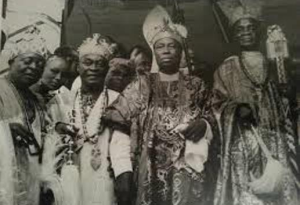
A series of factors, including desertification, contributed to the spread and diversification of the Yoruba language, resulting in the emergence of a series of dialects. Each dialect was distinct from the other yet mutually intelligible. The spread of the Yoruba language was also fueled by the transatlantic slave trade as enslaved Yoruba people carried their language and tradition to different regions across the globe, especially the Caribbean and the Americas. Over time, Yoruba blended with other languages, contributing to the formation of creole languages such as Lucumí in Cuba and Nagô in Brazil, which are still used in religious and cultural contexts today. Despite centuries of change and migration, the core of the Yoruba language has remained remarkably resilient.
How the Yoruba Language Shapes African Culture and Identity
1. Bridging the past and the present
Yoruba plays a vital role in preserving the history, values, and beliefs of the Yoruba people through its rich oral traditions. It serves as a powerful medium of transmitting knowledge and promoting a sense of belonging among its speakers through its folktales, poetry, proverbs, and chants. This has helped influence cultural practices in Nigeria, across the African content, and beyond. The Yoruba language effectively captures the community’s spirituality, philosophy, and governance, ensuring that such key aspects of African heritage remain alive and relevant.
2. Preservation of Oral Traditions
The Yoruba language serves as a living archive of history, values, and culture by helping preserve oral traditions. Yoruba-speaking communities have passed down lessons on spirituality, leadership, and morality through proverbs, chants, and folktales, which often take place during communal gatherings. Hence, Yoruba actively reinforces a sense of unity and cultural pride.
3. Spiritual and Religious Influence.
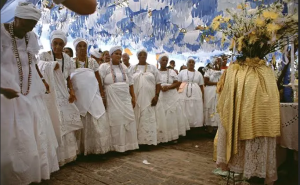
Indigenous Yoruba religion, which involves the worship of deities known as “Orisha,” uses the language extensively in prayers, rituals, and songs. The language has also influenced religious practices across the African diaspora, such as Candomblé in Brazil and Santería in Cuba, where Yoruba words and phrases are integral to worship and ceremonies.
4. Promoting African Artistic Expressions
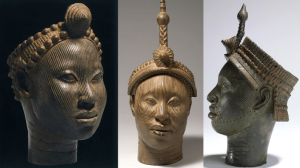
The Yoruba language is deeply embedded in African artistic expressions, including music, dance, visual art, and theatre. Traditional Yoruba music often incorporates rhythmic language patterns, while festivals and masquerades use Yoruba chants to invoke ancestral spirits. This artistic use of language helps preserve cultural identity and reinforces connections to African heritage.
5. Reflecting and Reinforcing African Communal Values.
The Yoruba language reflects and reinforces African communal values by emphasizing respect for elders, collective responsibility, and social harmony. Greetings, for example, are elaborate and reflect social hierarchy and kinship bonds.
6. Symbol of Resistance and Pride.
Yoruba represents resistance against cultural erasure and colonization. The preservation and revival of the language across Africa and the diaspora highlight the strength and endurance of African cultures. Initiatives promoting Yoruba in education, media, and digital platforms help reclaim African identity and ensure that future generations remain connected to their heritage.
The Yoruba Language in Pop Culture and Media
1. Yoruba in Music and Entertainment.
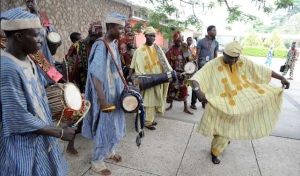
Yoruba has become a powerful force in shaping contemporary African music as globally recognized artists incorporate the language into their lyrics and performances. Afrobeats stars like Burna Boy, Wizkid, and Olamide often blend Yoruba phrases, proverbs, and slang with English and Pidgin. This results in a unique sound that resonates worldwide. Traditional Yoruba musical styles, such as Apala and Fuji, have also managed to preserve the language while appealing to younger audiences by influencing modern genres.
2. Yoruba in Film and Television
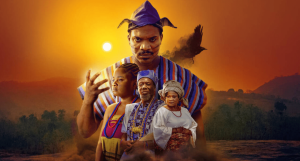
Yoruba-language films and TV series have gained popularity both in Nigeria and across African streaming platforms and international audiences. Shows, such as “Aníkúlápó” and “King of Boys,” showcase Yoruba storytelling and actively reinforce cultural pride and authenticity.
3. Yoruba in Literature and Theatre
Yoruba-language literature, including poetry and folktales, remains a vital part of African literary expression. Similarly, popular playwrights like Wole Soyinka and Ola Rotimi incorporate the language into their works, providing insight into the worldview and philosophy of the Yoruba people.
4. Yoruba in Digital and Social Media
Popular social media platforms like TikTok and Instagram have helped foster greater appreciation for the language and culture by enabling Yoruba speakers to share their language with global audiences. In addition, there has been an increase in Yoruba podcasts and YouTube channels dedicated to teaching the language and bridging generational and geographical gaps.
References
Britannica, (2024). Yoruba. https://www.britannica.com/topic/Yoruba
Johnson, O. (2010). The History of the Yorubas. From the Earliest Times to the Beginning of the British Protectorate, pp. 3 – 14. DOI: https://doi.org/10.1017/CBO9780511702617.006. Publisher: Cambridge University Press
Ogundiran, A. (2021). A long view sheds fresh light on the history of the Yoruba people in West Africa. The Conversation. https://theconversation.com/a-long-view-sheds-fresh-light-on-the-history-of-the-yoruba-people-in-west-africa-162776

